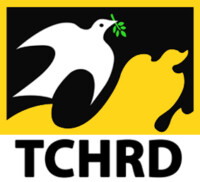Reports of economic conditions in Dayab, Chamdo region, reveal that Tibetan farmers, who depend solely on seasonal farming of barley, have had to find new means of livelihood. Farmers have begun to search for Yartsa Gunbhu, a Tibetan medicinal plant, which they, sell at market for 2 yuan each. However even this small source of income is now being targeted for Chinese taxes. Each farmer must pay one sang (50 grams or one tenth of one gyama which is 500 grams) as a tax and the remaining plants must be sold to the Chinese authorities for only five mosey each, one quarter of the market price.
A person can collect 50 Yartsa Gunbhu at the most per day but most are unable to do so. Some can collect only two. The Yartsa Gunbhu is found only twice in a year, and for those who are unable to collect enough plants to pay the tax it is necessary to buy the plant from others to do so.
Chinese authorities are reported to levy a tax on every farmer of 36 gyama (18 kg) of barley. While the authorities pay a nominal.amount of 4 mosey for each gyama, this is far below the market rate and is used to conceal the levy. After paying the tax of 36 gyama of barley, it is necessary to keep some part as a seed for the next season, and only after that can the little that remains be used for the consumption of family members.
It is reported that recently the Chinese authorities have begun collecting even the seed kept for the next season with the promise that it would be returned later. The authorities have been buying the barley at a rate of 4 mosey and then selling it back to the farmer at a price of 1 yuan in 1995 and 1 yuan 3 mosey in 1996.
Tibetan sources say that the lives of the people in Dayab are very poor and that it is hard for them to manage even two meals per day. Some, desperate for food, have tried eating sting nettle, a kind of grass found on the farming land. The consumption of this grass has affected many Tibetans, causing their faces to swell and their health to drastically weaken. While the Chinese government has distributed land and animals, the majority of the related earnings have reportedly been collected by Chinese authorities as a tax.
